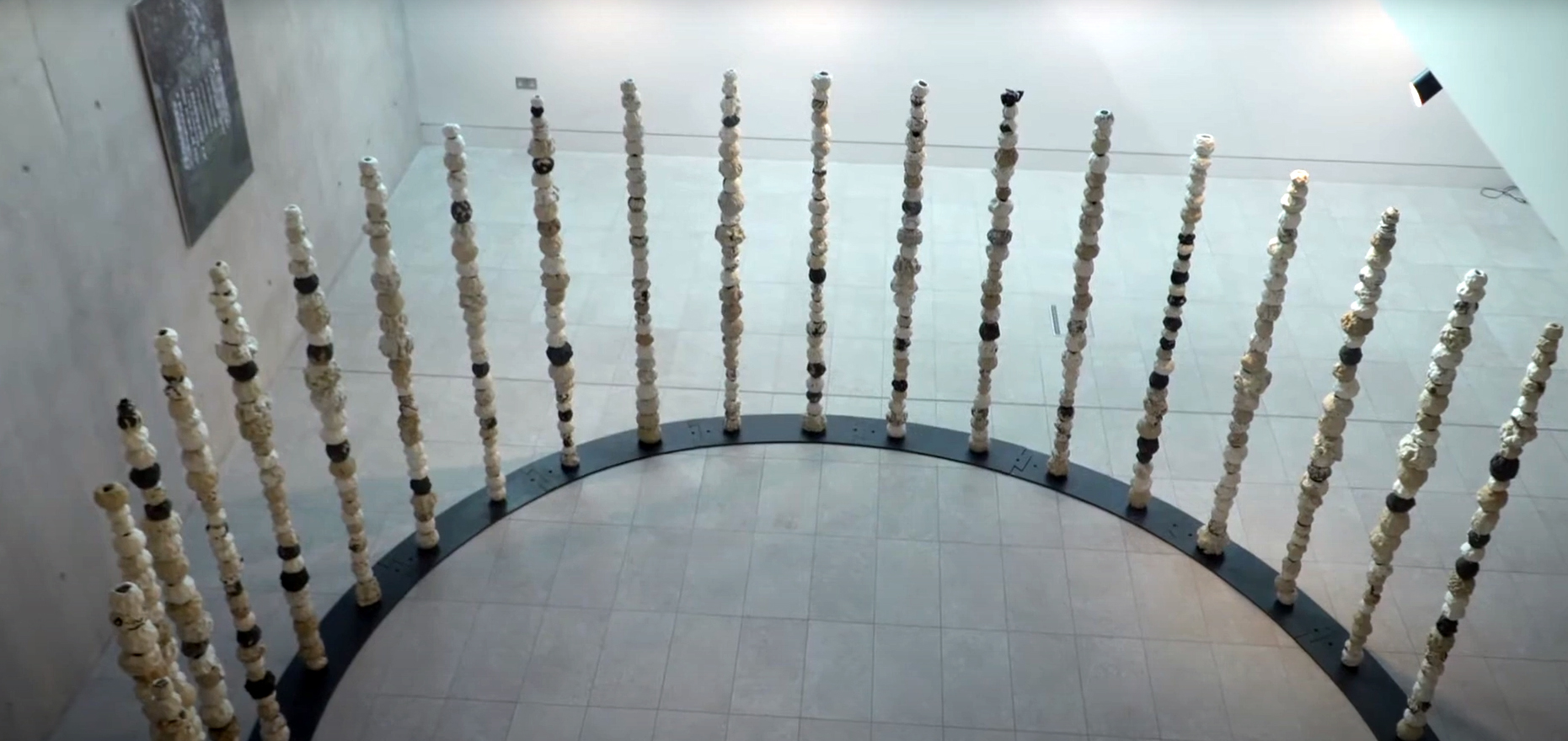University of Sanctuary

In 2018, the University of Winchester became the first university in southern England to receive a 'University of Sanctuary' award from the City of Sanctuary charity, recognising its support for refugees and asylum seekers in higher education. Over the past decade, Winchester has built strong expertise in supporting forced migrant students and works closely with local, national and international refugee organisations.
The University worked with partners and volunteers to establish Winchester City of Sanctuary in 2020, leading on refugee education and ‘Schools of Sanctuary’. Within the University of Winchester, our University of Sanctuary Staff Network reflects and extends this work.
We are members of the Council for At-Risk Academics (CARA) Fellowship programme, which helps academics in immediate danger and those forced into exile.
In July 2025, the University formalised its partnership with Ivan Franko State University of Lviv, Ukraine, building on collaboration since 2022 through the UK–Ukraine Twinning Initiative. This partnership has fostered peer mentoring, virtual guest lectures, and joint research: strengthening academic ties and supporting displaced and at-risk scholars.
Our mission is to follow the key principles of Cities of Sanctuary: ‘Learn, Embed, Share’:
- Learn about what it means to be seeking sanctuary
- Embed this knowledge in activities and infrastructure of the University
- Share the knowledge and understanding with the University’s wider, external community
Learn
Forced displacement and the multitude of social, cultural, economic, psychological and educational issues ensuing from it are embedded in our curricula across a number of programmes, including the following:
- BA (Hons) Education
- BA (Hons) Primary Education with QTS
- BA (Hons) English Literature
- BA (Hons) History
- BA (Hons) Modern History
- BA (Hons) Politics with International Relations
- BA (Hons) Sociology
- BSc (Hons) Social Work
- LLB (Hons) Law
- PGCE – multiple routes
- MSc Forensic Psychology
- MSc Social Work
Research
The University of Winchester's Centre of Research for Educational Action and Theory Exchange (CREATE), convened by Professor Wayne Veck, is a research centre focused on educational theory and practice. Within CREATE, there are multiple research clusters, including the CREATE Cluster for Refugee Education.
The Departments of Education and Psychology collaborated to produce a comprehensive report, Wellbeing Assessment and Perceived Accessibility of Support for Ukrainians Seeking Sanctuary, on the support needs of Ukrainian parents in the UK.
Dr Julie Wharton’s PhD thesis, Children Seeking Sanctuary and the Welcoming Teacher: Inclusive Relationships and Martin Buber’s Philosophy of Dialogue, explores how educators can create inclusive, welcoming environments for refugee and asylum-seeking children in UK primary schools.
Dr Emily Stiles’ History research focuses on representations of forced migration within museums, with a recent conference paper The Model Migrant? Holocaust Refugees In The Museum, delivered at University of Kent.
Embed
Sanctuary Awards Programme
In 2010, Winchester was one of the first universities in the UK to offer financial support for students seeking sanctuary in the UK to undertake a degree course.
In 2019, the University of Winchester joined other UK universities in a multi-stakeholder pledge led by REUK and King’s College London, supporting the UNHCR’s goal of 15% refugee youth accessing higher education by 2030.
In 2025, the University provided one of our scholarships in collaboration with Refugee Education UK and Elimisha Kakuma as part of the Displaced Student Initiative, a shared effort to expand access to higher education for displaced learners.
Winchester's Sanctuary Scholarship Award waives tuition fees and offers a bursary of £5000 a year to support the costs of study. The Award is offered to up to two new students each year.
All our Sanctuary Scholars are allocated a designated Student Journey Co-ordinator who supports them throughout their studies.
To date, a total of 67 Sanctuary Scholarships and 4 CARA Fellowships have been awarded, supporting 64 students from 26 countries.
Share
Conferences
Our University of Sanctuary Staff Network annual Refugee Education Conferences are timed to coincide with World Refugee Week. They are aimed at schools, colleges, universities and professionals supporting the work they do.
The inaugural conference took place on 21 June 2023 and focussed on the Refugee Week 2023 theme of Compassion, the 2024 conference revolved around the WRF24 theme of Our Home, and the 2025 conference followed the theme of ‘Community as a Superpower’.
The University of Winchester’s Refugee Education Conferences have grown each year, with the 2025 conference attracting over 100 delegates from across the region.
Hampshire Universities Together (HUT)
HUT is a collaboration between the four Hampshire universities (Winchester, Solent, Southampton and Portsmouth) on the important role of HE institutions in regional civic engagement. With all three cities being Cities of Sanctuary and the four HEIs having University of Sanctuary status, the Sanctuary element is one of the HUT's main activity strands.
Hampshire Hub for Sanctuary Education
Formed during the first Refugee Education Conference in 2023, the Hampshire Hub for Sanctuary Education includes members from institutions throughout Hampshire and continues to meet regularly online and annually in person during each conference hosted at the University of Winchester.
Regional Links and Partnerships
- Winchester City of Sanctuary
- Southampton and Winchester Visitors Group
- Cities of Sanctuary South West
- Rural Refugee Network
National Links and Partnerships
Contact us, follow us
Follow the University of Sanctuary Network on Twitter
For more information about our news and events, including our annual Refugee Education Conference, please visit University Of Sanctuary News And Events.
